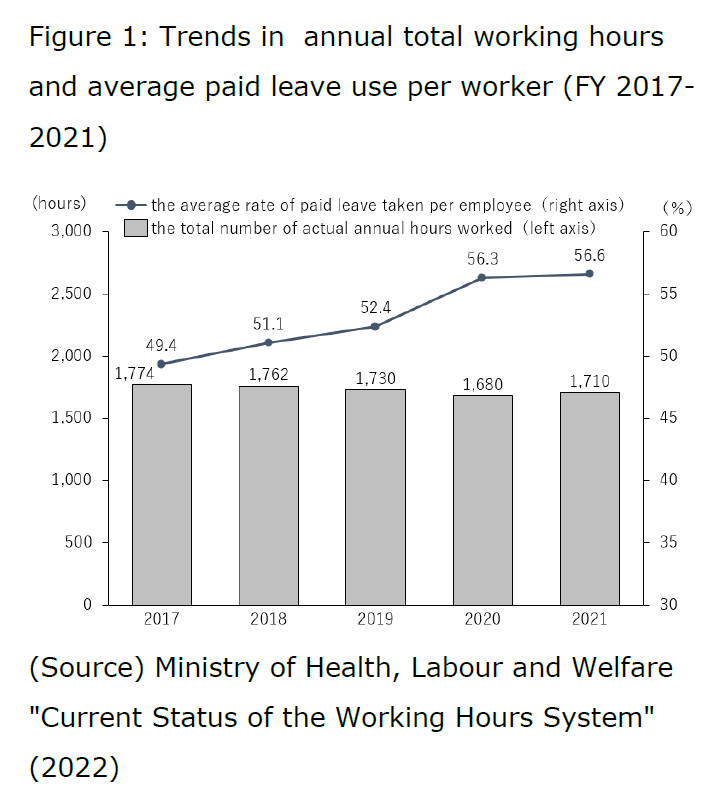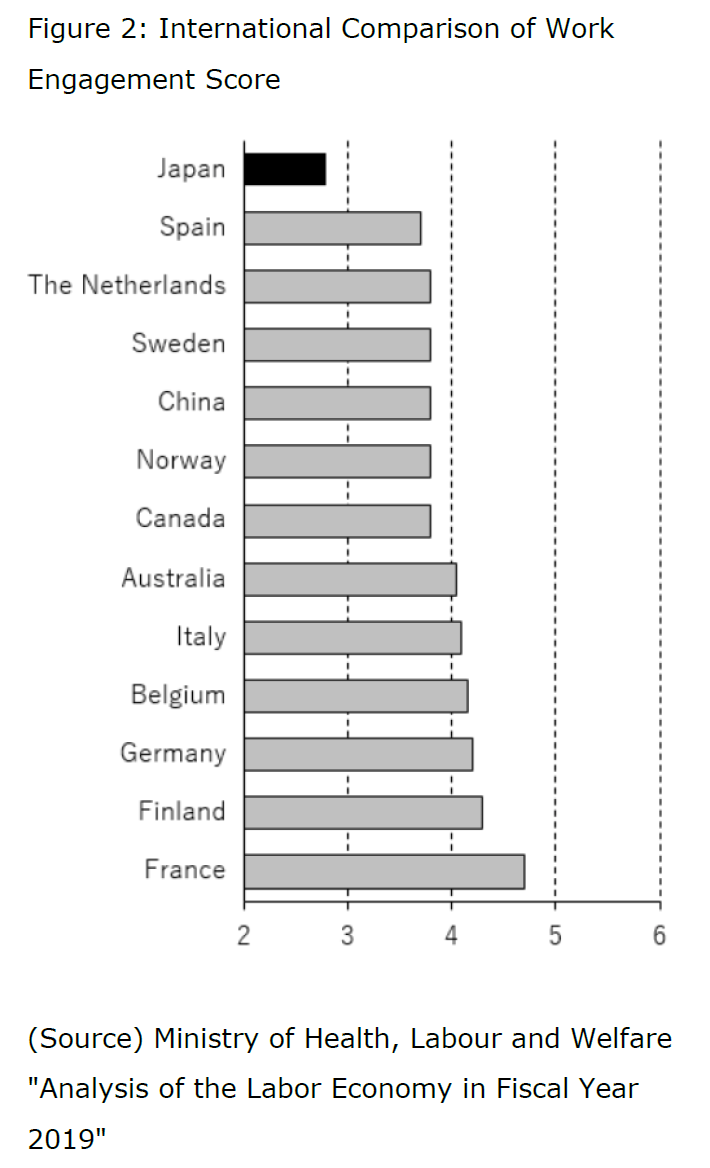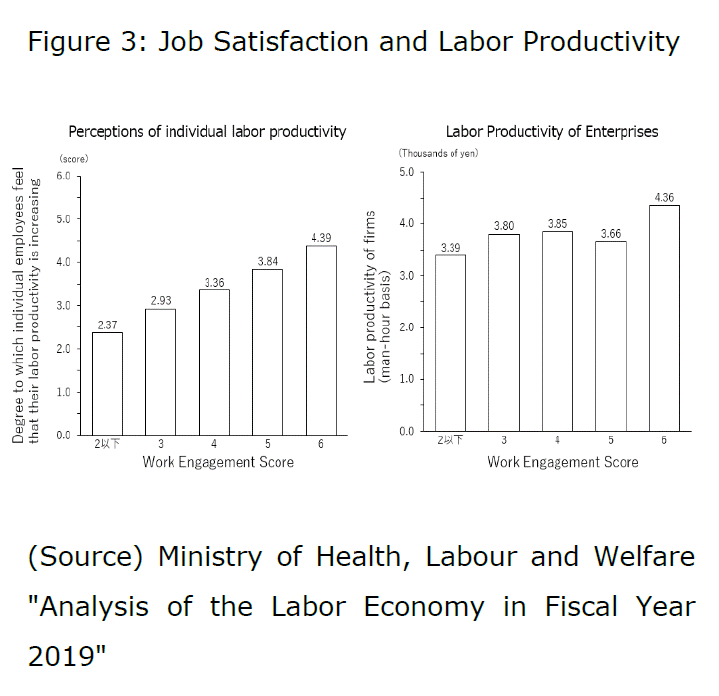

- Report Index
- Can companies increase revenues through “employee job satisfaction reform”?
- DLRI Report
-
2023.9
Can companies increase revenues through “employee job satisfaction reform”?
Saki Takamiya
The ease of work has improved in recent years
Since April 2019, the Law on Workplace Reform has been progressively implemented in Japan. Based on the law, the government aims to achieve "work-life balance" and "diverse and flexible working styles" by eliminating long working hours and preventing overwork. Consequently, companies are striving to improve their respective workplace environments. In recent years, there has been an improvement in the annual total working hours and the average rate of paid leave taken per employee (Figure 1). With a "comfortable" work environment now established, where people can work safely and comfortably, the government and companies are moving on to the next stage - the realization of a work environment where people can work with "job satisfaction".

Productivity increases as "job satisfaction" improves
The "Analysis of the Labor Economy in Fiscal Year 2019", published by the Ministry of Health, Labour and Welfare in September 2019, scores and analyzes "job satisfaction" (Work Engagement Score). Although direct comparisons cannot be made in general due to the Japanese tendency to suppress the expression of positive emotions, which is considered socially desirable, Japan's Work Engagement Score is relatively low compared to other countries (Figure 2).

According to the analysis, it has been suggested that improving "job satisfaction" could lead not only to higher labor productivity, but also to a higher retention rate of new employees and a lower turnover rate. (Figure. 3). Furthermore, these effects are expected to increase the company's performance.

With the current decline in the working-age population due to the falling birthrate and aging population, and the increasing job mobility, workers are becoming more selective about their workplace. In such an environment, enhancing a company's reputation from the perspectives of "ease of work" and "job satisfaction" is extremely important for securing human resources. We are beginning to see initiatives to improve 'job satisfaction', such as measuring engagement in the company and conducting 1-on-1s. In order to create a better working environment, it is crucial for both companies and employees to share the current situation and challenges in the workplace, rather than the company making unilateral efforts.
Original in Japanese:
https://www.dlri.co.jp/report/dlri/244980.html
Disclaimer:
This report has been prepared for general information purposes only and is not intended to solicit investment. It is based on information that, at the time of preparation, was deemed credible by Dai-ichi Life Research Institute, but it accepts no responsibility for its accuracy or completeness. Forecasts are subject to change without notice. In addition, the information provided may not always be consistent with the investment policies, etc. of Dai-ichi Life or its affiliates.


